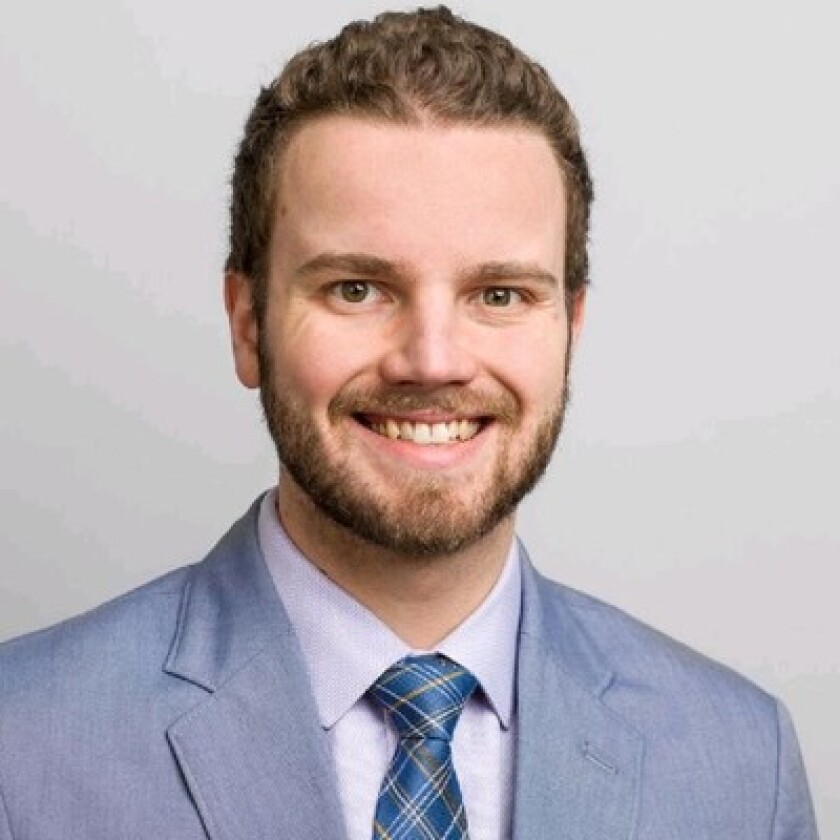The Internal Revenue Service issued guidance Tuesday to make temporary changes to section 125 cafeteria plans, with the goal of providing tax relief and flexibility in the midst of the novel coronavirus pandemic. The IRS is extending the claims period for health care flexible spending arrangements and dependent care assistance programs and enabling taxpayers to make mid-year changes to their accounts.
The guidance released Tuesday by the IRS deals with the unanticipated changes in expenses faced by many taxpayers as a result of the COVID-19 pandemic. The IRS is now allowing its previously provided temporary relief for high deductible health plans to be applied retroactively to Jan. 1, 2020, and also increases for inflation the $500 permitted carryover amount for health FSAs to $550.
James Pruskowski is the CIO and co-founder of 16Rock, a full-service asset management firm specializing in Municipal Bonds. He leads the firm's flagship 16Rock Municipal Opportunities Fund LP, a long-short hedge fund, as well as the firm's long-only Separately Managed Account (SMA) client business.
Mr. Pruskowski spent nearly three decades at BlackRock starting in 1994 shortly after the firm was founded, when it had only 50 employees and $25 billion in assets under management. He was a Managing Director, Portfolio Manager, and Head of Municipal Bonds, Institutional & Wealth Management. Mr. Pruskowski was a member of the management committee and led a team of 58 investment professionals, driving strategic growth initiatives and innovation. He has a proven track record over multiple investment cycles and award-winning performance.
Before focusing on municipal bonds, Mr. Pruskowski was a multi-sector taxable fixed income portfolio manager. He was instrumental in launching BlackRock's Financial Institutions Group, which has grown into the world's leading insurance asset management business. He provided a wide array of services in balance sheet management, analytics, capital markets, and portfolio construction to banks, insurance companies, and official institutions worldwide. Mr. Pruskowski began his career in Risk & Quantitative Analytics as a risk analyst and programmer, playing a key role in the development of what is now known as BlackRock Solutions.
Mr. Pruskowski is a thought leader and content expert, known for his diverse skills, experience, and energetic, detail-oriented, and structured approach. His hands-on, can-do attitude drives results. As an industry advocate with strong brand awareness, he frequently speaks publicly, engages with the media, and collaborates with clients. He possesses a unique talent for understanding, designing, and clearly explaining markets and complex concepts in an accessible manner.
Paul Wnek is founder, CEO and principal solutions architect at ExpandAP, a 14x certified Salesforce B2B solutions architect, founder and CEO of Coalescence Cloud (Salesforce Consulting Partner) and Salesforce certified AI associate.
Hagit Levy-Shalev is an associate professor in the Stan Ross Department of Accountancy in the Zicklin School of Business at CUNY's Baruch College.
In Notice 2020-29, the IRS is offering extra flexibility to taxpayers by:
- extending the claims periods for taxpayers to apply unused amounts remaining in a health FSA or dependent care assistance program for expenses incurred for those same qualified benefits through Dec. 31, 2020;
- expanding the ability of taxpayers to make mid-year elections for health coverage, health FSAs and dependent care assistance programs, allowing them to respond to changes in needs as a result of the COVID-19 pandemic; and
- applying earlier relief for high-deductible health plans to cover expenses related to COVID-19, and a temporary exemption for telehealth services retroactively to Jan. 1, 2020.
In conjunction with that notice, the IRS also issued Notice 2020-33, in response to the Trump administration’s Executive Order 13877, which directs the Treasury secretary to “issue guidance to increase the amount of funds that can carry over without penalty at the end of the year for flexible spending arrangements.” The notice ups the limit for unused health FSA carryover amounts from $500, to a maximum of $550, adjusted each year for inflation.




